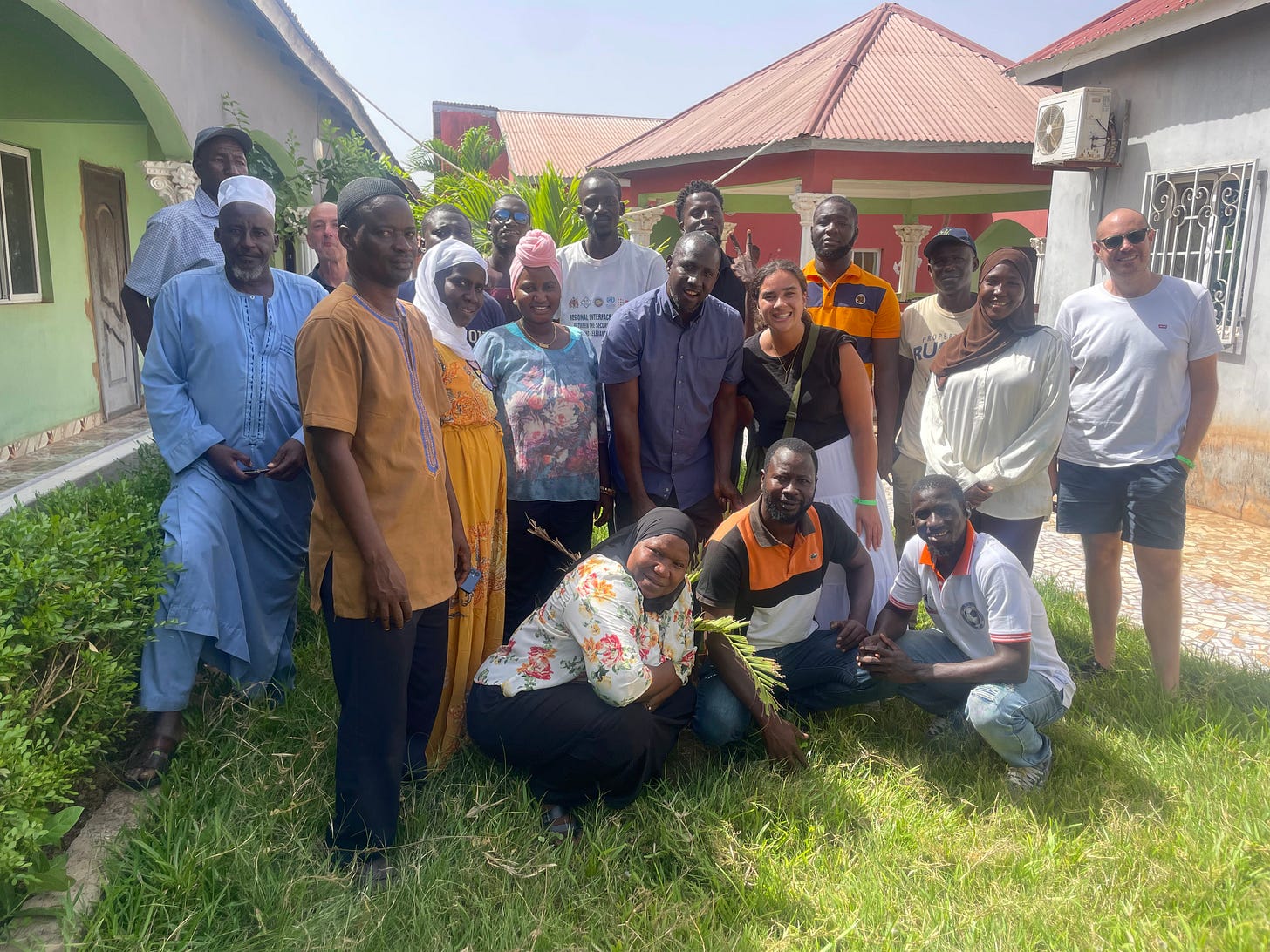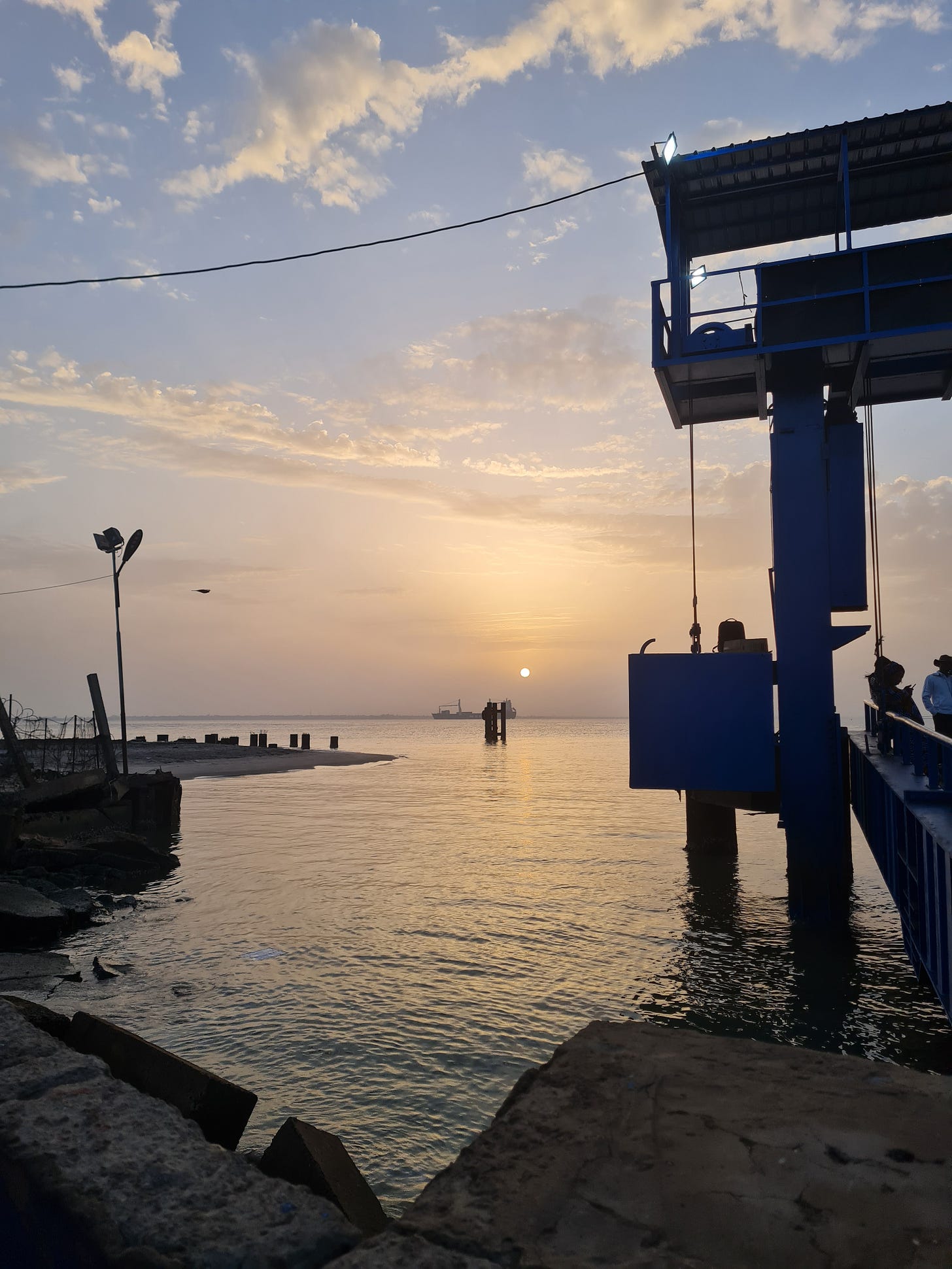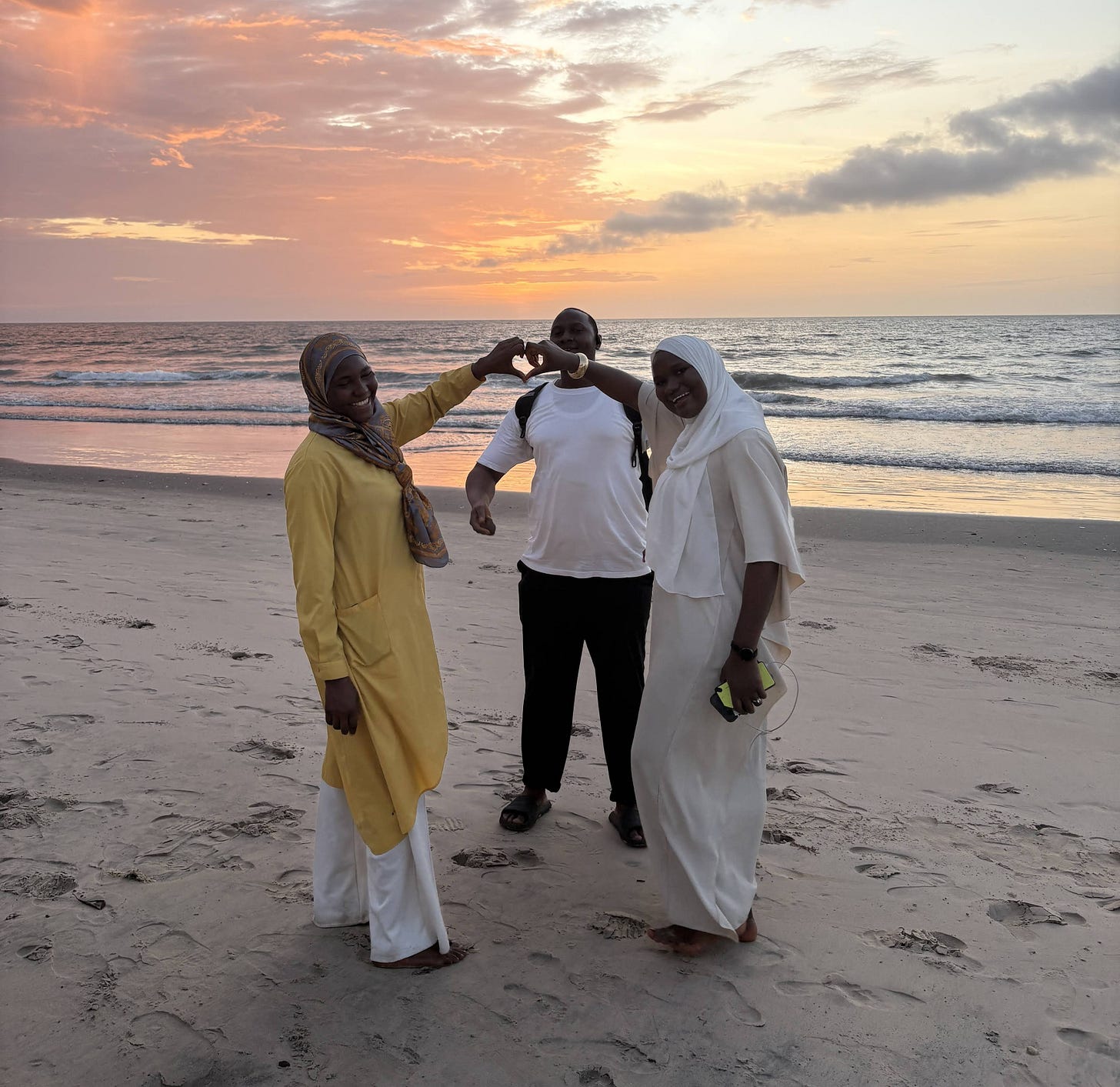Deliberation in The Gambia – our view from Kerewan
Fresh from their visit to Kerewan, our Cities Programme team, James Macdonald-Nelson and Hannah Terry, share what it’s like to be part of a landmark moment in The Gambia’s democratic journey
Greetings from James and Hannah, DemNext’s Cities Programme team 👋
We’re recently back from an energising trip to The Gambia. We’ve been working with Civic and the Great Green Wall Frontline (GGWF) team, who are our key partners on the ground and are leading the design and implementation of the first ever citizens’ assembly with randomly-selected members in The Gambia. This initiative marks a major milestone in democratic innovation for the region.
The assembly will bring together randomly-selected citizens from across the North Bank Region of The Gambia, which has a population of ~225,000. Scheduled to take place during one full week at the end of October 2025, the assembly will be held in Kerewan, the region’s capital. You can read more about the location on our dedicated page here.
Thirty randomly-selected assembly members from across the North Bank Region will deliberate on recommendations for restoring land and ecosystems in the region. They will focus on how this can ensure better livelihoods for the communities. They will also consider which possible funding models can help make this happen, what kind of co-governance structures can ensure deeper, ongoing community input, and what are the priorities for restoration.
How did we get to this outcome?
Meeting in person this month has significantly helped build momentum to finalise the assembly’s design and plan next steps for implementation. It was a productive week of face-to-face collaboration - a refreshing change from virtual meetings and our online assemblies learning programme.
In Banjul, the capital, we worked closely with Pete Bryant (Shared Future) and the GGWF core team - Maimuna Jabbie, Mbassey Manneh, Momodou Cham, Abbas Sonko, and the assembly’s lead facilitators, Cherno Gaye and Satang Aiesha Omar, to align on design elements such as shaping the core question, mapping out key stakeholders, and establishing who will be part of the oversight group.
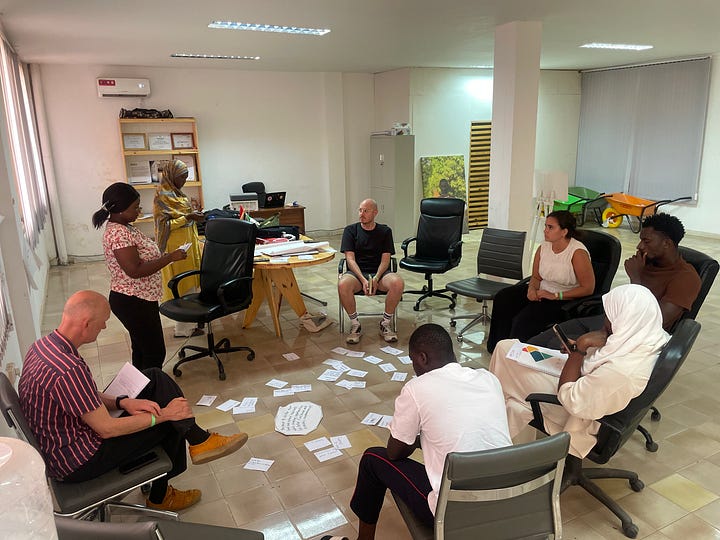
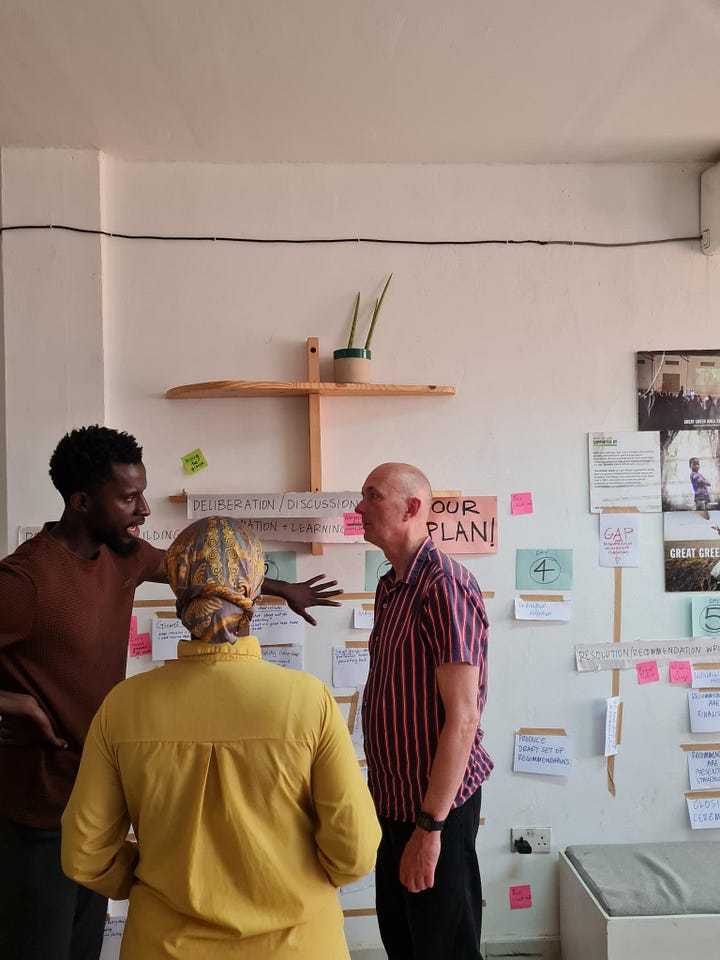
What made the week particularly special was having an opportunity to collaboratively design the assembly process. Learning from the GGWF and facilitation team about how deliberation works in the Gambian context, and hearing examples of successful participatory processes they’ve been involved in, helped to inform all the design choices.
Cherno and Satang are highly experienced facilitators, but this will be their first citizens’ assembly, and so with Pete, we worked together to plan out what facilitation will look like for the Kerewan assembly.
We made a day trip to Kerewan, the regional capital where the assembly will take place, to meet with GGWF’s district coordinators, who play a key role as representatives from the seven districts of the North Bank Region, liaising between GGWF and the communities they live and work in. It started with catching a sunrise ferry across the Gambia River. Driving through the various villages along the North Bank Region, we made impromptu stops for fresh cashews and mangoes!
“The interactions during the facilitation week with DemNext in Kerewan stood out for me. We were able to build beautiful relationships in a creative and collaborative atmosphere. The tools, techniques of facilitation, especially on how to gather feedback from participants, are very useful skill sets I learned.” - Maimuna Jabbie - GGWF Team lead
But beyond the scenic journey, the day was packed with purpose. We dove into important conversations about current citizen engagement and co-created a sortition (random selection) process for the 50+ villages from which citizens will be selected.
To round out the day, DemNext and the GGWF team were welcomed by Kerewan’s Alkaloo, the village chief, who expressed excitement that GGWF’s efforts are continuing in the region and include this partnership with DemNext.
On our way back we took a longer route, crossing over the Gambia River near the border town of Farafenni, home to one of the few bridges that span the river in the country. This gave us a chance to drive back to Banjul along the south bank as the sun set.
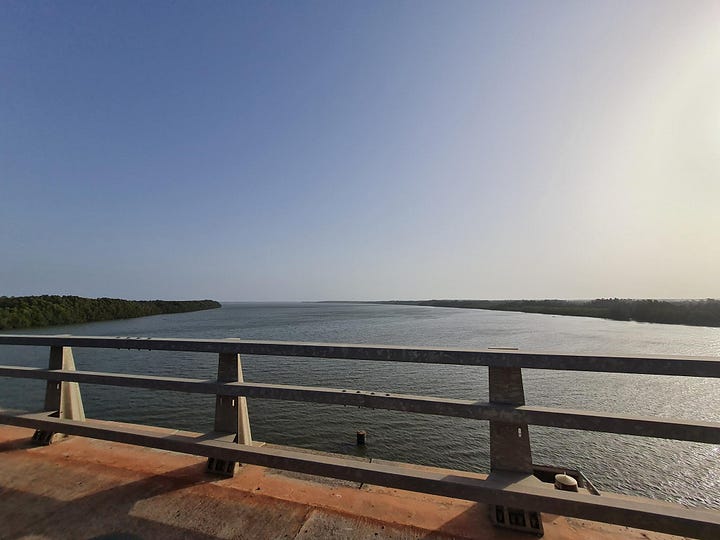
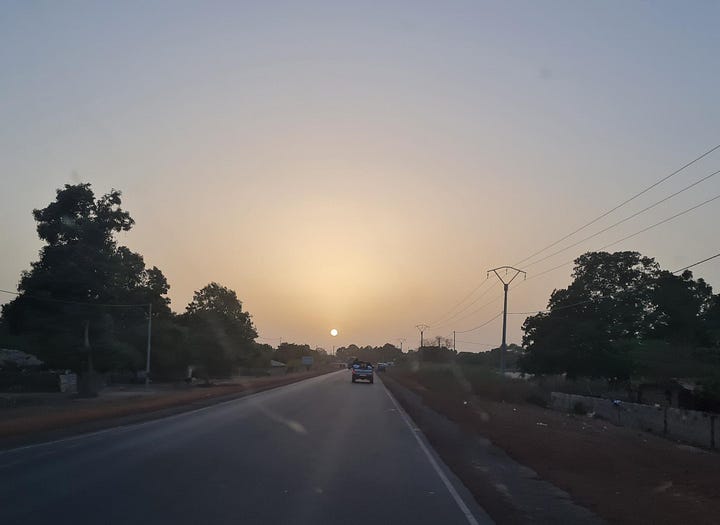
The rest of the week was spent back in Banjul, working closely with the crew on the facilitation and detailed design of the citizens' assembly where Pete led an in-depth facilitation workshop over three days.
During the workshop, we developed the facilitation plan and macro design of the assembly – two parts that are inextricably linked. We figured out together how to structure each day of the assembly – the questions, subtopics, and session formats – and directly tied this to the various activities that can enable deliberation.
Key outcomes:
➕ A facilitation plan for each day of the assembly
➕ A shared sense of ownership among the facilitators and wider team
➕ Clear next steps and division of responsibilities ahead of the assembly this autumn
➕ A detailed power mapping exercise to identify key stakeholders, who needs to be involved in oversight, in feedback loops, and in the final delivery of recommendations.
In the months ahead, GGWF and the lead facilitators, with the help of DemNext, will conduct the random selection process, establish and convene an oversight group, and continue strengthening relationships with local, regional, and national stakeholders.
We’re grateful to our Gambian hosts for our fun and productive time together, and are looking forward to the next steps taking shape!
➡️ Read more about our work with Kerewan here.
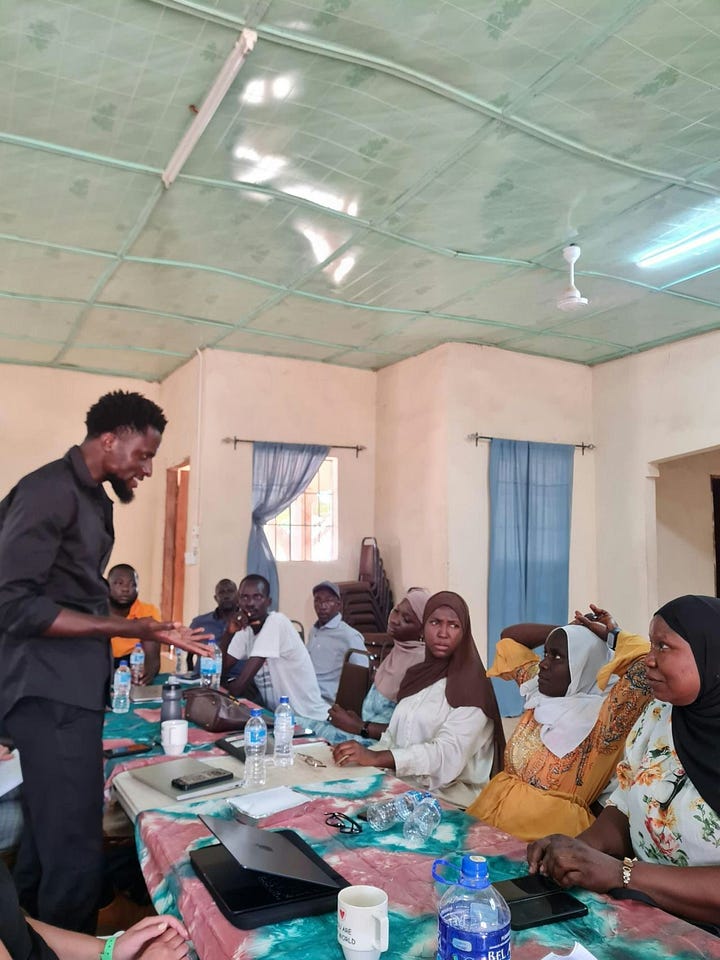
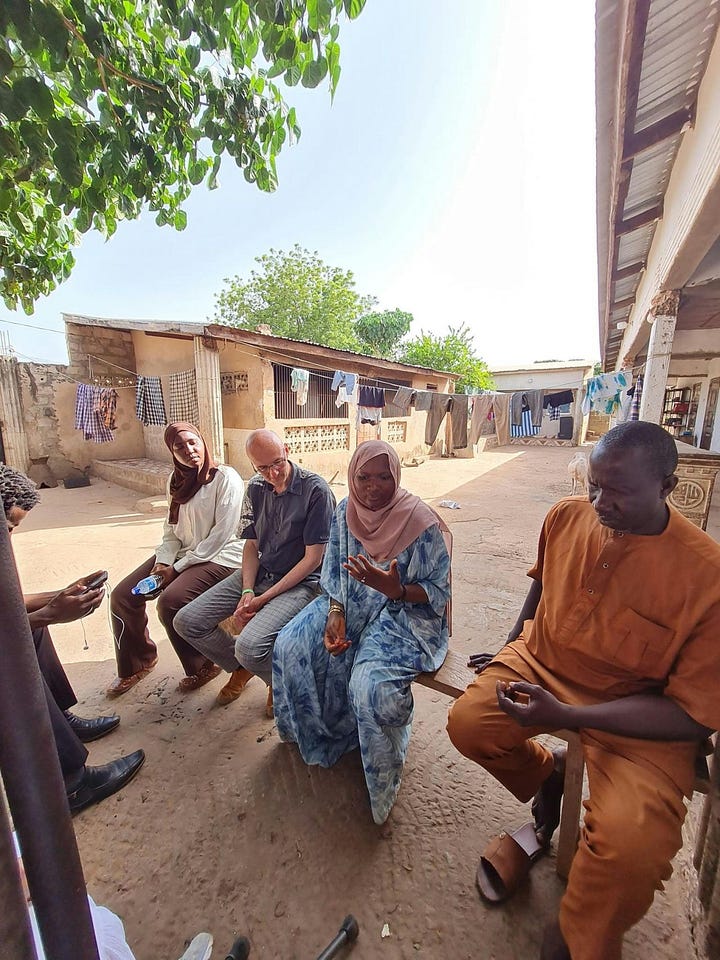
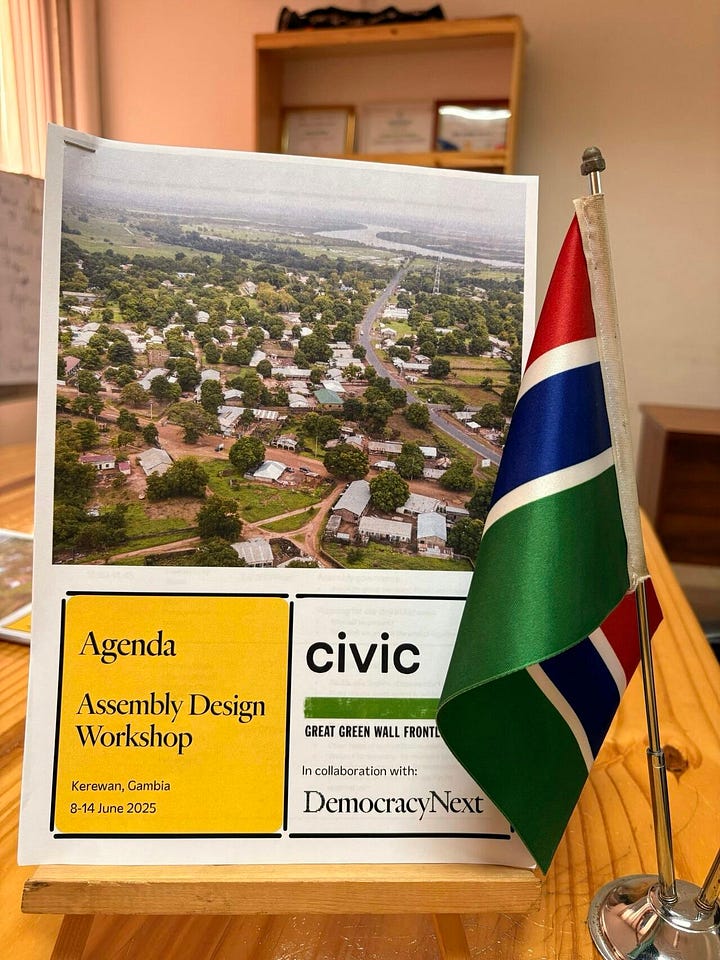
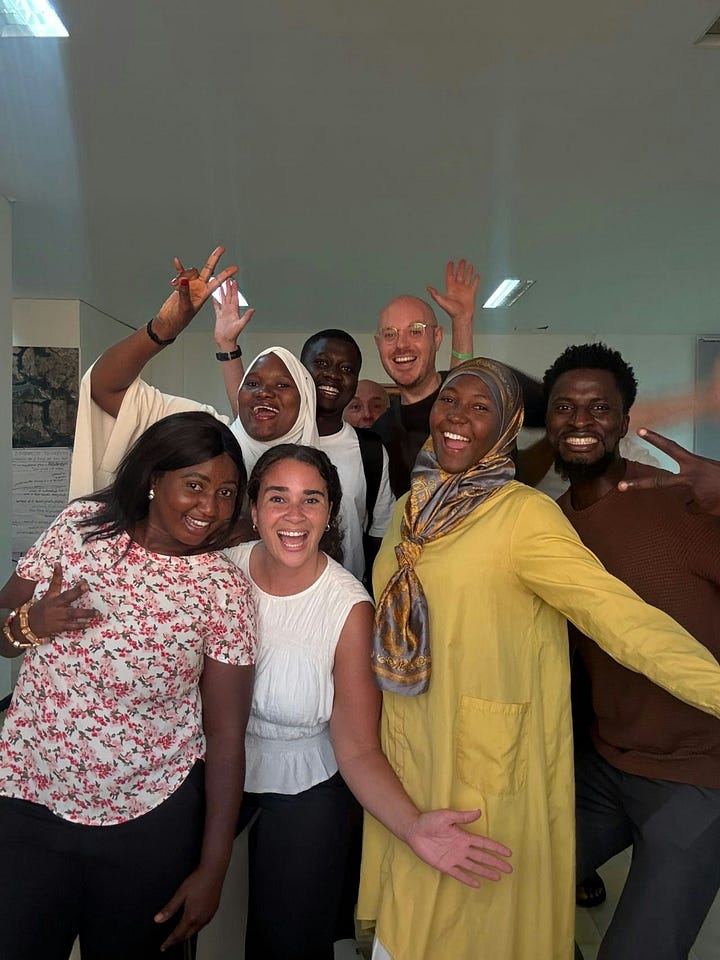
In our Cities Programme, we partner with cities and regions worldwide to embed citizens’ assemblies into city governance - bringing everyday citizens directly into the planning and development process in an ongoing way.
Building on our 2024 paper, Six Ways to Democratise City Planning, the programme offers a structured, multi-phase approach - comprising nine learning modules, bespoke design workshops, and full assembly roll-outs, each supported by local facilitators and rigorous evaluation.
Following an open call in February 2024, drawing over 20 submissions from cities in 17 countries across the world, we selected the inaugural cohort of three cities: Esch‑sur‑Alzette (Luxembourg), Kerewan (The Gambia), and Vilnius (Lithuania).
The 18‑month collaboration supports these cities in designing and implementing citizen-led assemblies, with a view to institutionalising deliberative, sortition‑based planning processes for more inclusive, responsive urban governance.
Throughout our collaborations, we’ve used our Assembling an Assembly Guide, which we invite you to consider if you’re also planning a citizens’ assembly.
If you’re looking for support with your own citizens’ assembly, or just curious to know more, reach out to James Macdonald-Nelson, our Cities Programme Lead.
Earlier this year, we shared news of a funding freeze from one of the key supporters of our Cities Programme, the National Endowment for Democracy (NED). This affected our cities work in The Gambia and Lithuania. We are happy to announce that the National Endowment for Democracy has been able to resume funding, enabling us to continue this important programme.
We were very heartened by the swell of individual contributions from the DemNext community when we made a call for donations at the time of the NED funding uncertainty. Whilst we had to pause our work on most aspects of the cities work, this support enabled us to go ahead with some programme activities - thank you!
We continue to seek financial support to enable us to continue this impactful work globally, so we can partner with more cities from 2026 and beyond. Can you help?
📡 On our radar
💻 Re-watch our webinar launching the newest DemNext paper - Five dimensions of scaling democratic deliberation: With and beyond AI.
🦅 New America looks at how citizens’ assemblies in North America are being funded, and why financing models matter for scale and equity.
🗳️ The Harvard Law Review makes a compelling case for reimagining ballot initiatives with deliberative design at their core.
📢 Can the use of citizens’ assemblies transform Northern Ireland’s policy landscape to secure public buy‑in on issues from housing to Stormont (parliament) reform.
💬 Nearly 200 Pennsylvanians took part in a ‘deliberative poll’ on voting reforms demonstrating how structured citizen dialogue can offer fresh clarity where legislatures have stalled.
🤳 How social media outrage is reshaping politics in Indonesia, how this stands in ‘sharp contrast to deliberative democracy’, and what it means for democratic stability.
🐝 Upcoming events
25 - 27 June, Verona, Italy
DemNext CEO, Claudia Chwalisz, and International Advisory Council Member, David Van Reybrouck, will be taking part in a discussion and workshop on ‘Reimagining Democracy Today Through Citizen Assemblies’, at the Arendtian Counciliarism: Visions and Care for Democracy conference. After the November US elections last year, Claudia wrote an essay exploring On Revolution - the focus of the conference - as well as Van Reybrouck's Against Elections in light of political events. Read it here.





